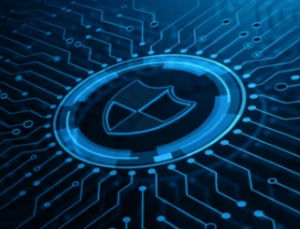'Code Is Law': Should Software Developers Protect Our Freedoms?
As law and code converge, what is the responsibility of software developers?
 The social overlap between my legal friends and my blockchain colleagues, whether on the business or technical side, is remarkably small. It’s surprising given how closely related the two fields are. In fact, I can’t imagine a meaningful blockchain conversation that doesn’t quickly escalate into a regulatory or legal rabbit hole. However, there’s one conversation that reliably comes up in both circles: code is law.
The social overlap between my legal friends and my blockchain colleagues, whether on the business or technical side, is remarkably small. It’s surprising given how closely related the two fields are. In fact, I can’t imagine a meaningful blockchain conversation that doesn’t quickly escalate into a regulatory or legal rabbit hole. However, there’s one conversation that reliably comes up in both circles: code is law.
My blockchain colleagues, especially the more technical ones, use the phrase “code is law” to suggest that code — for example, a software that usually underlies a smart contract — will one day in the future replace law. They believe that code will one day be the final authority. Accordingly, if a code has an inadvertent glitch and performs in an unexpected, perhaps unfair way, they would shrug their shoulders and respond: “Well, code is law.”
I have yet to find a lawyer or regulator who shares this view. If anything, the view in my legal and regulatory circles is the opposite. Legal practitioners and regulators, unsurprisingly, believe in the rule above all and cannot imagine the world where equities and circumstances are ignored.

Curbing Client And Talent Loss With Productivity Tech
The CFTC Commissioner recently said, “I have heard some say that ‘the code is law,’ meaning that if the software code permits it, an action is allowed. I disagree with this fundamental premise. Case law, statutes, and regulations are the law. They apply to the code, just as they apply to other activities, contracts, or agreements.” He explained, “It is certainly possible that the software code does not represent the entirety of the participants’ agreement and must be interpreted in connection with traditional contract law concepts like good faith and fair dealing.” In other words, the rule of law trumps computer-generated code.
It was Lawrence Lessig, in his article of the same name and the book, Code and Other Laws of Cyberspace, who coined the phrase “code is law.” But when Lessig first used the phrase, he didn’t have in mind its contemporary usage. Lessig doesn’t argue that if software code permits an action, it is necessarily allowed. And he definitely doesn’t argue that software will replace law.
Rather, when he wrote that “code is law,” Lessig was arguing that the internet should incorporate constitutional principles. Lessig astutely observed early on that the software that underlies the very architecture and infrastructure of the internet governs it as a whole. But who decides what the rules of code are? Who are the architects behind these code-based structures? There is an obvious and troublesome lack of transparency.
There are ways to undo it. Open-source software, if built correctly, can provide substantive protections such as freedom of speech on the internet. Just like the U.S. Constitution has built-in checks on power to guarantee various freedoms, the internet should include built-in transparency measures to protect the freedoms of its users.
Sponsored

Curbing Client And Talent Loss With Productivity Tech

How Thomson Reuters Supercharged CoCounsel With Gen AI Advances


Legal Contract Review in Under 10 Minutes? Here’s How

Legal Contract Review in Under 10 Minutes? Here’s How
Though it admittedly sounds a bit futuristic, I can certainly imagine a future in which computers, software, the internet, artificial intelligence, and other technology replace today’s legal system, at least some aspects of it. Will software replace law — our legal framework and institutions — completely? It may happen, though likely not in our lifetime. Until then, perhaps part of law could be automated through code in the near future.
As law and code converge, what is the responsibility of software developers? Should they take steps to protect our freedoms more intentionally? What do you think?
 Olga V. Mack is an award-winning general counsel, operations professional, startup advisor, public speaker, adjunct professor at Berkeley Law, and entrepreneur. Olga founded the Women Serve on Boards movement that advocates for women to serve on corporate boards of Fortune 500 companies. Olga also co-founded SunLaw to prepare women in-house attorneys become general counsel and legal leaders and WISE to help women law firm partners become rainmakers. She embraces the current disruption to the legal profession. Olga loves this change and is dedicated to improving and shaping the future of law. She is convinced that the legal profession will emerge even stronger, more resilient, and inclusive than before. You can email Olga at [email protected] or follow her on Twitter @olgavmack.
Olga V. Mack is an award-winning general counsel, operations professional, startup advisor, public speaker, adjunct professor at Berkeley Law, and entrepreneur. Olga founded the Women Serve on Boards movement that advocates for women to serve on corporate boards of Fortune 500 companies. Olga also co-founded SunLaw to prepare women in-house attorneys become general counsel and legal leaders and WISE to help women law firm partners become rainmakers. She embraces the current disruption to the legal profession. Olga loves this change and is dedicated to improving and shaping the future of law. She is convinced that the legal profession will emerge even stronger, more resilient, and inclusive than before. You can email Olga at [email protected] or follow her on Twitter @olgavmack.
Sponsored

Data Privacy And Security With Gen AI Models








